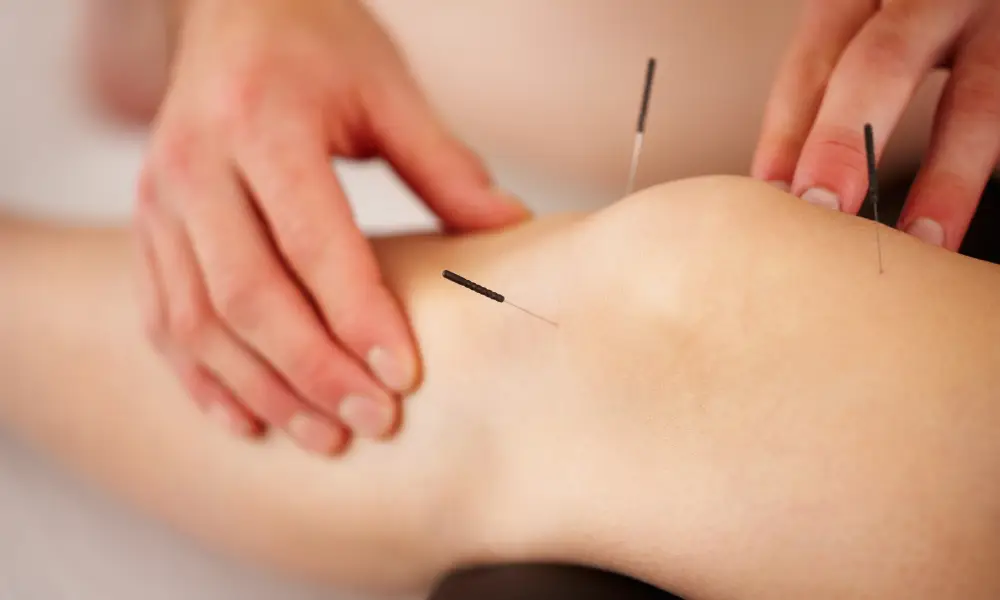Menopause, a natural phase in a woman’s life, often brings along a myriad of symptoms that can significantly impact both physical and emotional well-being. Traditional treatments exist, but an emerging holistic approach gaining popularity is acupuncture.
Menopausal symptoms are diverse and can range from hot flashes to mood swings, affecting a woman’s daily life. Amidst the various treatments available, acupuncture for menopausal symptoms stands out as a comprehensive and alternative approach, addressing the root causes rather than just the symptoms. In this article, we learn about the challenges and symptoms of menopause and how effective and helpful acupuncture is for menopausal symptoms along with some helpful tips to consider while seeking an acupuncturist for menopausal symptoms.
Contents
Understanding Menopause Symptoms 
Menopausal symptoms refer to a range of physical and emotional changes that women experience as they go through menopause, a natural biological process marking the end of their reproductive years. Menopause typically occurs around the age of 45 to 55, and its onset is associated with a decline in the production of hormones such as estrogen and progesterone. The symptoms can vary widely among women, and while some may go through menopause with minimal discomfort, others may experience more pronounced and bothersome symptoms. Common menopausal symptoms include:
- Hot Flashes
- Sudden, intense feelings of heat, often accompanied by sweating.
- Can occur during the day (hot flashes) or at night (night sweats).
- Night Sweats
Excessive sweating during sleep often leads to disrupted sleep patterns. - Vaginal Dryness
- It reduced moisture and lubrication in the vaginal area.
- May lead to discomfort or pain during sexual intercourse.
- Sleep Disturbances
Insomnia or disrupted sleep patterns, can be caused by hormonal changes, hot flashes, or other factors. - Mood Swings
Rapid and unpredictable changes in mood, including irritability, anxiety, and feelings of sadness. - Irregular Periods
Menstrual cycles become irregular, and periods may be lighter or heavier than usual. - Changes in Libido
Some women may experience a decrease in sexual desire or changes in sexual satisfaction. - Fatigue
Persistent feelings of tiredness and reduced energy levels. - Urinary Changes
Increased frequency of urination or urinary incontinence. - Memory and Concentration Issues
Some women may experience difficulties with memory and concentration, often referred to as “menopausal brain fog.” - Joint and Muscle Pain
Joint pain, stiffness, or muscle aches may occur. - Weight Gain
Changes in metabolism and hormonal fluctuations can contribute to weight gain, particularly around the abdominal area. - Hair and Skin Changes
Thinning hair and changes in skin elasticity may occur.
Acupuncture Sessions For Menopausal Symptoms
Acupuncture sessions for menopausal symptoms involve the use of traditional Chinese medicine practices to address and alleviate various physical and emotional challenges associated with menopause. Here’s what you can expect from acupuncture sessions specifically targeted at managing menopausal symptoms:
Initial Consultation
- Purpose: The first session typically involves a detailed consultation with the acupuncturist to discuss your overall health, specific menopausal symptoms, medical history, and lifestyle factors.
- Importance: This information helps the acupuncturist understand your individual needs and tailor the treatment plan accordingly.
Traditional Chinese Medicine Assessment
- Purpose: The acupuncturist may assess your overall health using traditional Chinese medicine principles, which include examining the balance of energy (Qi) in the body, evaluating the meridians, and identifying any blockages or imbalances.
- Importance: This assessment guides the acupuncturist in determining the specific acupuncture points to target during the sessions.
Treatment Plan Development
- Purpose: Based on the consultation and assessment, the acupuncturist develops a personalized treatment plan to address your menopausal symptoms.
- Components: The plan may include the frequency and duration of acupuncture sessions, lifestyle recommendations, and possibly the incorporation of other traditional Chinese medicine practices (e.g., herbal supplements, and dietary advice).
Acupuncture Sessions
- Procedure: During acupuncture sessions, the acupuncturist inserts thin, sterile needles into specific acupuncture points on your body.
- Point Selection: Acupuncture points may be chosen based on their traditional associations with hormonal balance, stress reduction, and symptom relief.
- Duration: Sessions typically last 20 to 30 minutes, during which you may lie comfortably with the needles in place.
Sensations and Comfort
- Sensations: You may feel sensations such as tingling, warmth, or a subtle ache around the needles. These sensations are usually mild and temporary.
- Comfort: Most people find acupuncture sessions to be comfortable and relaxing.
Consistency and Duration
- Consistency: Acupuncture is often most effective when sessions are consistent and part of a regular treatment plan.
- Duration: The number of sessions needed varies among individuals, but a course of several sessions may be recommended for optimal results.
Monitoring Progress
- Evaluation: Throughout the treatment course, the acupuncturist may assess your progress, making adjustments to the treatment plan as needed.
- Communication: Regular communication with the acupuncturist helps ensure that the sessions are addressing your specific needs and concerns.
Lifestyle Recommendations
- Advice: In addition to acupuncture, the acupuncturist may provide lifestyle recommendations, such as dietary suggestions, stress management techniques, and other practices to support overall well-being.
Collaboration with Healthcare Providers
- Communication: It is essential to inform your healthcare providers about your decision to pursue acupuncture for menopausal symptoms. This promotes collaborative and integrated care.
Individual Responses
- Variability: Responses to acupuncture can vary among individuals. Some may experience noticeable improvements in symptoms, while others may find the effects more subtle.
Acupuncture is considered a safe and non-invasive complementary therapy for managing menopausal symptoms. However, individual responses can vary, and it’s crucial to consult with healthcare professionals to ensure that acupuncture is a suitable and safe option for your specific health situation. Always choose a qualified and licensed acupuncturist for your sessions.
How To Choose The Right Acupuncture Therapist 
Acupuncture sessions for menopausal symptoms involve the use of traditional Chinese medicine practices to address and alleviate various physical and emotional challenges associated with menopause. Here’s what you should keep in mind and consider before choosing the right acupuncture therapist for you:
- Credentials and Licensing
Ensure the acupuncturist is licensed and certified, demonstrating proper training and adherence to professional standards. - Experience and Specialization
Look for an acupuncturist with experience in treating menopausal symptoms, preferably with a specialization in women’s health. - Referrals and Recommendations
Seek referrals from trusted sources or healthcare professionals to gauge effectiveness and patient satisfaction. - Reviews and Testimonials
Read online reviews and testimonials focusing on menopausal symptom management and overall patient experiences. - Consultation and Communication
Schedule a consultation to discuss symptoms and treatment goals, and assess the acupuncturist’s listening and communication skills. - Treatment Approach
Inquire about the acupuncturist’s approach to treating menopause and hormonal imbalances. - Cleanliness and Safety
Visit the acupuncture clinic to ensure cleanliness, hygiene, and a safe treatment environment. - Credentials and Training
Ask about the acupuncturist’s education, training, and any additional certifications related to women’s health. - Patient-Centered Approach
Choose an acupuncturist who takes a patient-centered approach, tailoring treatments to individual needs. - Insurance and Costs
Check insurance acceptance and inquire about costs, including consultation fees and per-session pricing. - Availability and Location
Consider location and office hours that align with your schedule for convenient attendance. - Collaboration with Healthcare Providers
Ensure the acupuncturist is open to collaborating with your primary healthcare provider for integrated care. - Ask About Treatment Plans
Inquire about the proposed treatment plan, including session frequency and expected duration for managing menopausal symptoms.
Choosing an acupuncturist for menopause involves a comprehensive evaluation of credentials, experience, patient-centred care, and collaboration with healthcare providers, with a focus on creating a positive and effective treatment experience.
Conclusion
In conclusion, acupuncture presents itself as a holistic and effective approach to alleviating menopausal symptoms. Addressing the root causes and promoting overall well-being offers a promising avenue for women seeking a natural and comprehensive solution.
If you are facing menopause related issues, menopause treatment at HerMantra can help. Book your free trial online menopause treatment session now.




